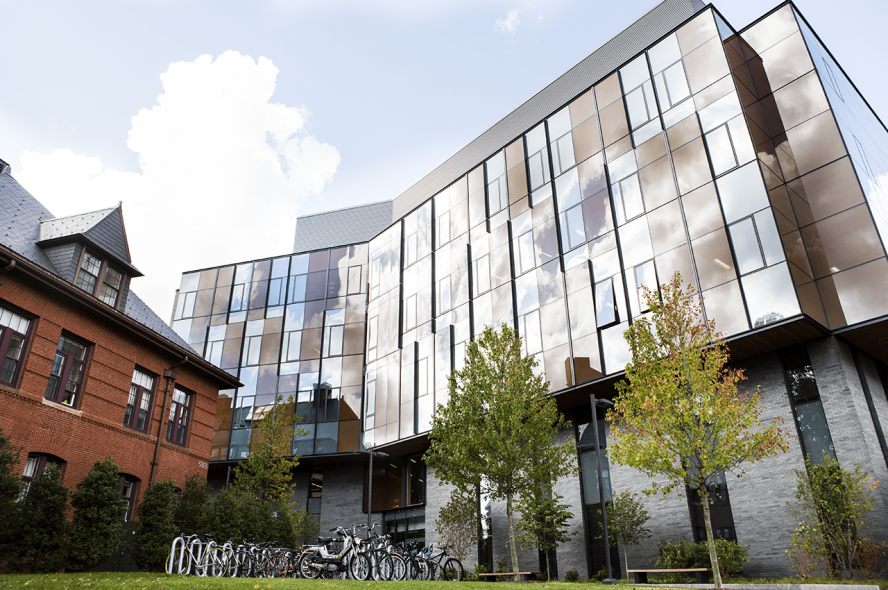Research symposium showcases Draper Scholars’ work

Each year Draper Labs selects graduate students from roughly 15 partner universities to participate in the Draper Scholars program. Draper Labs is a nonprofit engineering company focused on advancing technology at the intersection of government, academia, and industry. This year, four Tufts School of Engineering students and Draper Scholars — Nate Bragg, Tim Cheng, Peter Hsi, and Emmett Lepp — participated in the Draper Scholar Research Symposium to share their work. Over 200 engineers, scientists, university leaders, students, and professionals from industry, government, and academia attended the symposium to learn about student-led research at top universities. Read on to learn more about the Tufts Draper Scholars’ projects.
PhD student Nate Bragg of the Department of Computer Science is developing a software called “Scimitar” that integrates constraint optimization directly into a programming language, allowing users to specify constraint problems symbolically at a high level. Using Scimitar, programs would be able to determine optimal values to subproblems, then use those values to direct overall programs behavior. Bragg’s approach compares favorably with existing techniques, and has applications including resource management, design optimization, and traditional logistics problems.
PhD student Tim Cheng in the Department of Mechanical Engineering is developing a micro-Stirling engine, which can convert heat into electricity. He is currently receiving training on equipment at Draper’s microfabrication facility to begin fabrication and testing of the engine components. The finished device could be used for waste heat recovery and has implications in fields such as solar power, automotive engineering, and aerospace engineering.
Peter Hsi is a PhD student in the Department of Biomedical Engineering. His work with Draper is focused on improving methods for studying traumatic brain injuries (TBIs). He is developing a silk-based 3D brain tissue model to analyze cell-secreted vesicles and gain insight into the underlying pathways associated with injury progression in TBIs. Using Draper’s microfluidic platform the model has increased tissue complexity and can also screen for additional injury mechanisms. His findings may improve the precision of diagnostic capabilities and identify targets for future therapeutics.
Emmett Lepp is an MS student in the Department of Mechanical Engineering.